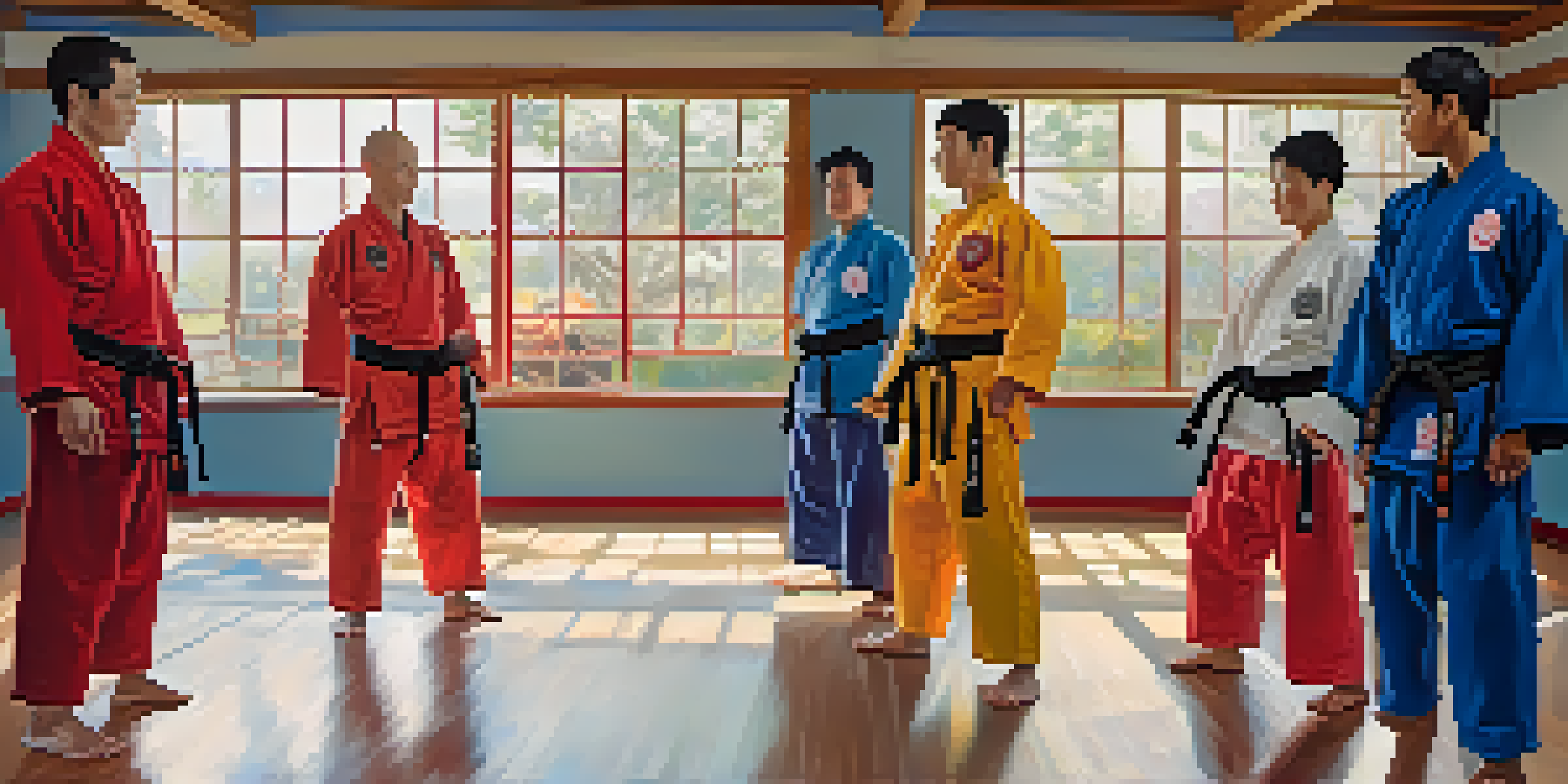Exploring Gender Identity Through Martial Arts Training Sessions

Understanding Gender Identity in the Context of Martial Arts
Gender identity is a deeply personal aspect of who we are, encompassing how we perceive ourselves and how we wish to be recognized by others. In martial arts, practitioners often find a unique space to explore and express their identity, free from societal norms. The dojo becomes a sanctuary where individuals can confront their feelings and experiences regarding gender in a supportive environment.
How Martial Arts Promote Confidence and Self-Expression
One of the key benefits of martial arts training is its ability to build confidence. As individuals learn new techniques and achieve their goals, they gain a sense of accomplishment that can translate into various aspects of life, including gender identity. This boost in self-esteem enables practitioners to express themselves more authentically, whether that means embracing their gender identity or challenging traditional norms.
Martial Arts as a Safe Space
The dojo provides a supportive environment for individuals to explore and express their gender identity.
Creating Safe Spaces for Diverse Gender Identities
Martial arts schools that prioritize inclusivity create safe spaces for everyone, regardless of their gender identity. These environments encourage open dialogue and mutual respect, allowing individuals to share their experiences and learn from each other. By fostering such a culture, martial arts can play a vital role in breaking down barriers and promoting understanding among practitioners of all genders.
The Role of Instructors in Supporting Gender Exploration
Instructors are crucial in shaping the culture of a martial arts school. When they actively support gender exploration and inclusivity, they set a positive example for students. This supportive leadership not only enhances the learning experience but also empowers students to embrace and express their identities without fear of judgment.
Empowerment Through Training
Martial arts training fosters physical strength and confidence, aiding individuals in reconciling their gender identity.
Physical Empowerment and Its Impact on Gender Identity
Martial arts training emphasizes physical empowerment, which can significantly impact an individual's relationship with their gender identity. As students become stronger and more capable, they often find a newfound sense of agency over their bodies. This physical empowerment can help individuals reconcile internal conflicts about their gender, leading to greater self-acceptance.
Community Building Through Shared Experiences
Martial arts classes foster a sense of community among practitioners, as they share the journey of learning and growth. This communal bond is especially valuable for those exploring their gender identity, providing a network of support. By sharing their struggles and triumphs, individuals can forge connections that affirm their experiences and identities.
Inclusivity is Essential
Creating inclusive environments in martial arts helps break down barriers and promotes understanding among all practitioners.
Challenges Faced by Non-Binary and Transgender Practitioners
Despite the many benefits, non-binary and transgender practitioners may still face challenges in martial arts settings. Issues such as misgendering or lack of representation can create barriers that hinder their full participation. Addressing these challenges is essential for creating truly inclusive environments where everyone feels valued and respected.
The Future of Gender Identity in Martial Arts
As awareness of gender identity continues to grow, the martial arts community is evolving as well. There's a push for policies and practices that ensure inclusivity and respect for all identities. By embracing this change, martial arts can become a beacon of acceptance and understanding, promoting not just physical skill but also emotional and social growth.
Martial Arts as a Safe Space
The dojo serves as a supportive environment where individuals can explore and express their gender identity free from societal norms.